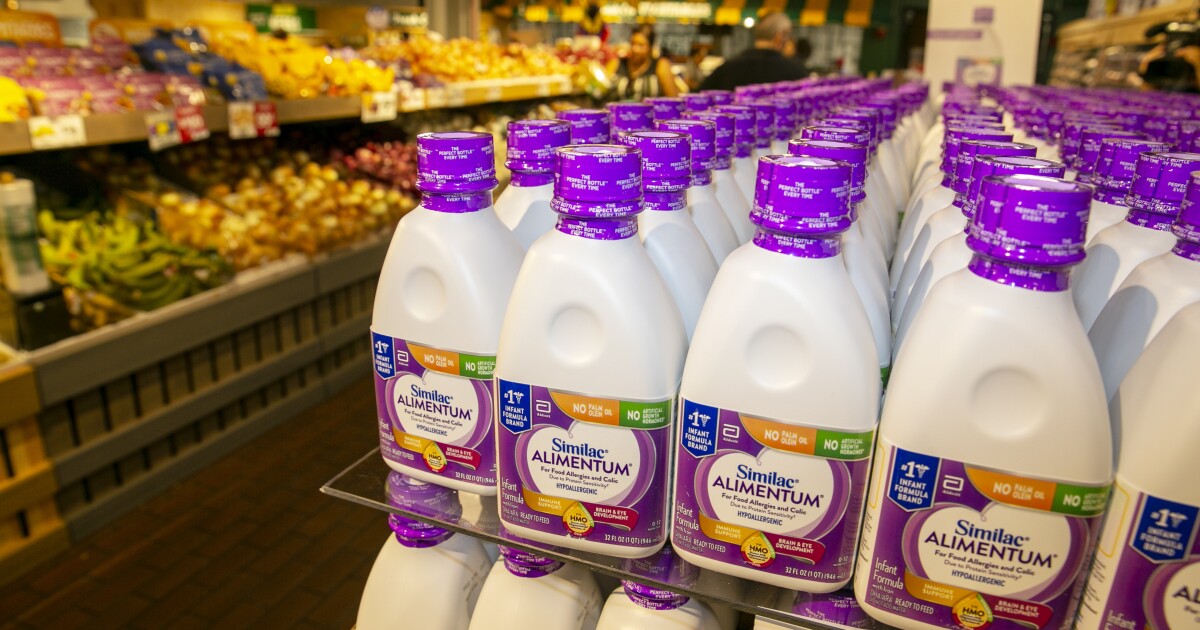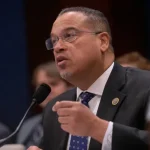

An internal review of the Food and Drug Administration’s actions leading up to the infant formula crisis found a number of shortfalls that exposed “systemic vulnerabilities” delaying the agency’s response.
Delays in processing whistleblower complaints, lack of staffing and training for its food inspectors, outdated technology, and insufficient manufacturing processes all created the perfect storm that exacerbated the formula shortage, the review led by Dr. Steven Solomon, director of the FDA’s Center for Veterinary Medicine, found, forcing the Biden administration to source millions of pounds of infant formula from overseas.
SENATE DEMOCRATS PRESS CRISIS PREGNANCY CENTERS ON WHAT DATA THEY COLLECT
“There is no single action to explain the events that occurred, rather the report identifies a confluence of systemic vulnerabilities that demonstrate the need to focus on continued modernization and investment in the expertise and tools needed to better anticipate and address future public health challenges in this area,” wrote Solomon. “As we implement these changes, we must ensure that they address the issues that led to the shortage of a safe, wholesome food supply for our most vulnerable populations.”
The report, based on dozens of interviews with over 60 FDA employees, found that there were “inadequate” processes and a “lack of clarity” regarding whistleblower complaints that delayed the FDA’s response, detailing that a complaint sent to FDA leaders by mail was never delivered. Solomon recommended that staff be trained on how to “identify, escalate, and appropriately manage confidentiality of such complaints” and that mail delivery services be reviewed.
A company whistleblower sent a complaint to the FDA in October 2021 related to contamination at Abbott Nutrition’s manufacturing facility in Sturgis, Michigan, but it took agency officials roughly two months to interview the person, who was a former employee at Abbott. By February, Abbott Nutrition initiated a voluntary recall of certain contaminated formulas, further worsening a growing shortage of formulas across the country.
The 10-page report detailed that the agency would need “considerable” resources to modernize its systems and hire and train more staff to keep it on pace to address evolving public health threats. It also underscored errors that were outside of the agency’s control, including that the FDA does not have the authority to require manufacturers of “infant formulas or certain medical foods” to notify it when a problem arises that could lead to a shortage.
“Access to this information in a timely manner could help the FDA take steps to potentially ensure continued availability of these products for consumers who need them,” the report read.
FDA Commissioner Robert Califf acknowledged some of the agency’s pitfalls but emphasized that the situation has highlighted that the agency has little authority to compel companies to “‘do the right thing’ without intervention.”
“Immediate changes that we’ve been able to implement include improving our emergency response structure and streamlining the ways in which the public can contact the agency to report concerns with food products. We have also developed a sophisticated data system to track production, distribution and purchase of infant formula,” Califf said in a statement. “There is more work to do, but this is a start.”
Infant formula supplies in the United States have been improving recently, with in-stock rates reaching 80% last week, up from 69% in mid-July, according to a report by IRI obtained by the Associated Press. Under the Biden administration’s “Operation Fly Formula,” the government has airlifted the equivalent of over 80 million bottles of formula since May from overseas.
GOP senators sent a letter to the FDA on Tuesday questioning why the agency hasn’t approved a non-United States baby formula producer’s application to sell in the U.S. market in over a month despite the shortage.
CLICK HERE TO READ MORE FROM THE WASHINGTON EXAMINER
“We understand from several manufacturers that FDA has still not indicated any attempt to review or prioritize increasing domestic production through competition,” they wrote, noting that the last application was approved in early August.







